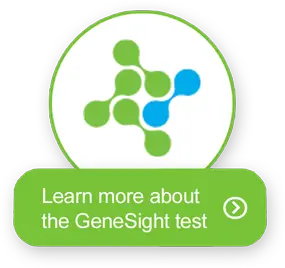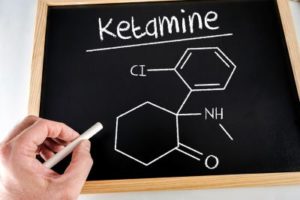
For thousands of years throughout the world, hallucinogenic substances have been used in many cultures for religious and mind-awakening purposes.
Now, researchers are exploring whether these substances could help those impacted by severe or treatment-resistant depression.
Treatment-resistant depression is exactly what it sounds like: severe depression that has not responded to any kind of treatment – whether medication, talk, or behavioral.

With the lack of success of other treatments, researchers have started to consider hallucinogens as a potential breakthrough in treatment.
This is not without precedent. After WWII, hallucinogens were used in the treatment of psychiatric disorders. In fact, according to Psychology Today:
“LSD was made freely available to scientists by the pharmaceutical company, Sandoz, and widely used in medical research in the 1950s and 60s, with tens of thousands of patients (and researchers) giving it a try for conditions such as schizophrenia and alcohol dependence. LSD was also used in psychotherapy to “assist” patients in recovering from their neuroses, for severe pain patients, and in an experiment with theology students where it was found to induce mystical experiences.”
Psychology Today notes that, back then, there wasn’t safety concerns in using hallucinogens. However, in 1966, the “United States banned LSD at a time when medical science was applying far more methodological rigor to what was considered a proper clinical trial.”
Magic Mushrooms Get Special FDA Designation
Late in 2018, the FDA granted a “breakthrough therapy” designation for psilocybin – the psychoactive ingredient in magic mushrooms – as a potential treatment for depression. That means the treatment has demonstrated such potential that the FDA has decided to expedite its development and review process and allow for large-scale studies to be conducted using the treatment.
As evidence, a recent Journal of Psychopharmacology study, while too small for the results to represent the entire population, showed evidence that psilocybin may work in treating depression by changing deeply entrenched beliefs. Researchers worked with seven volunteers with treatment-resistant depression, who took two doses of psilocybin one week apart.

How is a change in beliefs related to treatment-resistant depression? According to a Forbes article, “psilocybin may be showing impressive results in treatment-resistant depression studies because it’s allowing patients to ‘detach’ from certain entrenched beliefs that have anchored their depression.”
MDMA and PTSD
MDMA, also known as the recreational drug “ecstasy” and more recently as “molly,” was created by pharmaceutical company Merck in 1912. Like psilocybin, it won FDA designation as a potential “breakthrough therapy” last year.
Once it reaches the brain, MDMA increases the activity of certain neurotransmitters, or chemical messengers (including serotonin, dopamine, and norepinephrine), which are involved in mood regulation.
MDMA has shown promise in treating post-traumatic stress disorder (PTSD). A recent study that employed a combination of the drug and talk therapy showed that 76 percent of subjects essentially reported no PTSD symptoms 12 months after receiving the treatment. Larger trials at more sites are currently underway; it will likely be up to two years before FDA makes a definitive approval.
Ketamine as an Alternative Depression Treatment
Ketamine – because it is legal – has been at the front of efforts to understand how hallucinogens may work on treatment-resistant depression.
Ketamine is an anesthetic that has gained a dubious reputation because of its use as a party drug, partly because of its hallucinogenic effects. It has become increasingly popular with patients looking for alternative depression treatments, and with doctors who have seen its success in treating treatment-resistant patients. Ketamine used for this purpose is typically administered through an infusion, according to WebMD.
The Readers Digest recently published the story of a patient who underwent ketamine treatments and found the results “life-changing.” Esketamine nasal spray was recently approved by the FDA for the treatment of treatment-r
esistant depression. Studies evaluating the effectiveness and potential side effects of ketamine continue.
The continuing research into hallucinogens as a potential treatment for depression is promising for those with treatment-resistant depression. Follow our blog for updates on this and other topics on the treatment of depression.
Our articles are for informational purposes only and are reviewed by our Medical Information team, which includes PharmDs, MDs, and PhDs. Do not make any changes to your current medications or dosing without consulting your healthcare provider.
The GeneSight test must be ordered by and used only in consultation with a healthcare provider who can prescribe medications. As with all genetic tests, the GeneSight test results have limitations and do not constitute medical advice. The test results are designed to be just one part of a larger, complete patient assessment, which would include proper diagnosis and consideration of your medical history, other medications you may be taking, your family history, and other factors.
If you are a healthcare provider and interested in learning more about the GeneSight test, please contact us at 855.891.9415. If you are a patient, please talk with your doctor to see if the GeneSight test may be helpful.







